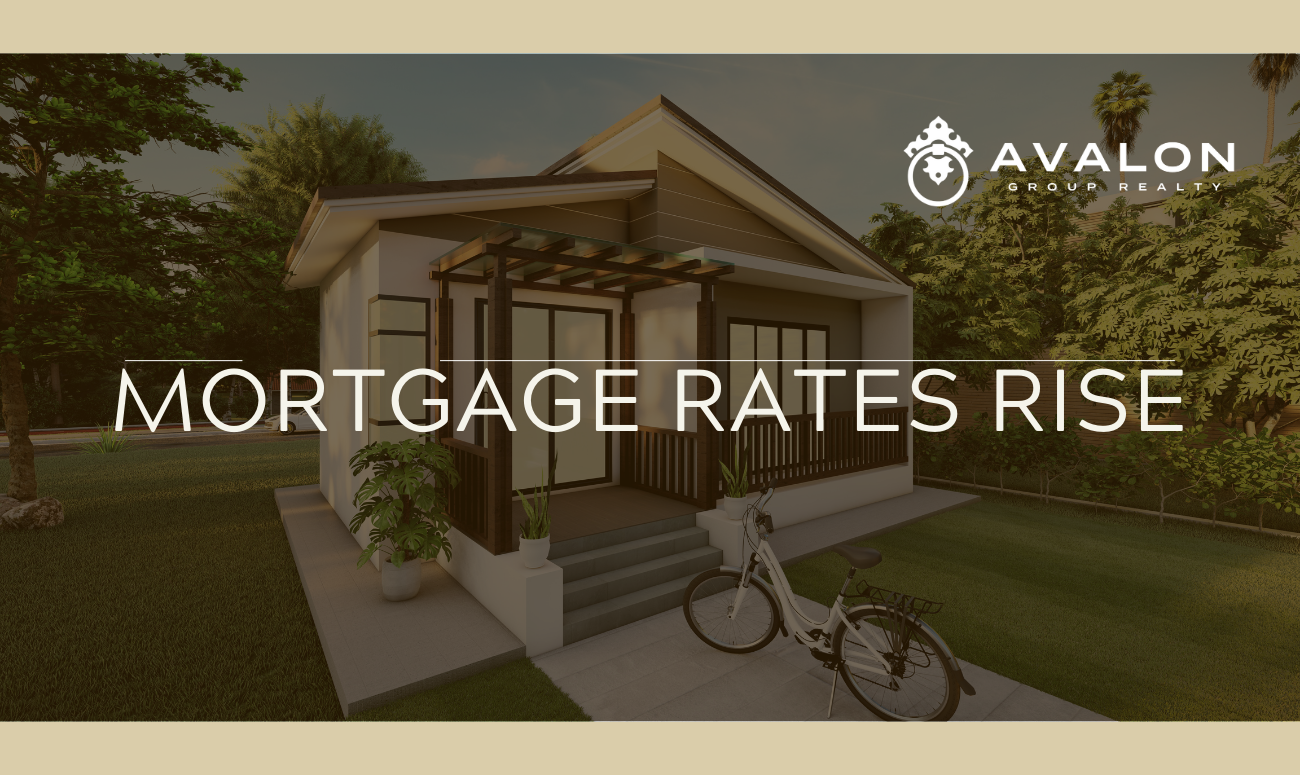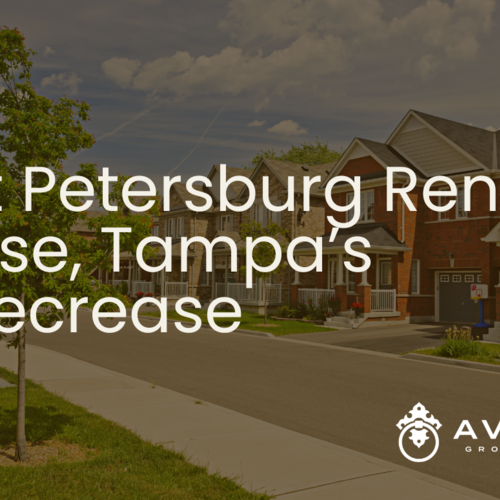Mortgage Rates Rise: Mortgage Rates on the Rise Again, Taking a Toll on Demand
After a welcome drop in December and January, inflation reports were showing increase. Therefore mortgage rates have again started trending upwards, leading to a decline in mortgage application volume. This reversal is putting renewed pressure on an already challenging housing market. Let’s take a closer look at the latest data and what it could mean going forward.
Mortgage Rates Rise: Volume
To begin with, mortgage application volume decreased 2.3% last week compared to the previous week, based on the Mortgage Bankers Association’s (MBA) seasonally adjusted index. This drop comes on the heels of renewed increases in mortgage rates. Specifically, the average contract interest rate for 30-year fixed-rate conforming mortgages rose to 6.87% last week, up from 6.80% the prior week. Additionally, points climbed to 0.65 from 0.59 for loans with a 20% down payment. This marks the highest level mortgage rates have reached since early December 2023.
Furthermore, mortgage applications to refinance existing loans showed the greatest sensitivity to these weekly rate changes, falling 2% week-over-week. However, they remain 12% above year-ago levels. While rates today sit approximately half a percentage point higher than last year, the descent from 20-year highs last fall has motivated some borrowers to refinance to capture any savings available. That said, most current mortgage holders have significantly lower rates than those presently offered.
Meanwhile, mortgage applications for home purchases declined 3% week-over-week and sit 12% below year-ago levels. As MBA economist Joel Kan described, “Purchase applications remained subdued as elevated rates continue to add to affordability challenges along with still-low existing housing inventory.” Clearly, higher rates are hindering many prospective home buyers even with low housing stock.
Mortgage Rates Rise: Pending Home Sales
Adding to this, recent Redfin data reveals an 8% year-over-year drop in pending home sales over the past four weeks. These declining signed contracts on existing homes indicate moderating demand ahead. As explained by Redfin’s Chen Zhao, “We’re seeing a bit of recovery with house hunters touring homes, but even demand at the earliest stages isn’t up as much as we would expect at this time of year.”
Evidently, the renewed mortgage rate climb along with lingering winter weather has sidelined some potential buyers for now. But the situation worsened on Tuesday with a surprising inflation report that sent mortgage rates surging once again. Matthew Graham from Mortgage News Daily summed it up: “The bond market (which underlies mortgage rates) reacted immediately and forcefully when the numbers came out. Bonds continued to worsen as the day went on, leading many mortgage lenders to raise rates once or twice during the day.”
Mortgage Rates Rise: The Bigger Picture
Stepping back, this reversal in mortgage rates and application volume arrives alongside a housing market already grappling with affordability issues. While mortgage rates are not as high as the peaks last fall, they remain elevated historically. This dynamic continues to strain buyer budgets and price some out of the market entirely.
At the same time, housing inventory sits near all-time lows, offering minimal selection and intensifying bidding wars in many areas. So the recent cooldown in demand could provide a welcome respite for frustrated buyers, though supply issues persist. Looking ahead, much remains uncertain for mortgage rates and house hunting conditions this spring.
Mortgage Rates Rise: :Economic Influences at Play
Clearly, a complex interplay of factors is impacting mortgage rates and housing dynamics overall. Most significantly, the Federal Reserve’s interest rate policy plays an oversized role in shaping mortgage rates. Since March 2022, the Fed has raised its federal funds rate over 500 basis points to fight troubling inflation levels not seen in 40 years. This aggressive tightening also aims to slow down the economy and tame runaway home price appreciation.
However, the desired cooling effect also restrains housing affordability and dims activity, especially as rates ratchet higher. For now, the Fed intends to keep rates elevated for some time until convincing signs of easing inflation materialize. So the path forward depends heavily on inflation data only starting to show real improvement in recent months.
Broader financial market headwinds further complicate the landscape. Recession concerns, stock market volatility, and global uncertainty among other factors have also driven investors toward safer assets like bonds. This demand can push up bond prices and lower yields or rates. So when inflation reaccelerated unexpectedly last month, bonds sold off and yields spiked, pulling mortgage rates upward again in response.
Mortgage Rates Rise: Inflation and Printing Money
As the US Government continues to print money, inflation will continue to rise. Many Americans believe the Government needs to balance the budget and stop creating money out of thin air. The US Government is essentially hurting its citizens and causing inflation and mortgage rate increases through excessive money printing. Reforms must be made and lawmakers in Washington DC need to be held accountable for the economic damage caused by runaway federal spending. This reckless fiscal policy threatens Americans’ financial security through eroding purchasing power. Citizens should call on their representatives to exercise restraint and safeguard the nation’s economic stability.
Mortgage Rates Rise: Home Price and Sales Outlook
The combined influence of higher interest rates and stubborn inflation has significantly weakened home buying demand from the frenzied levels of 2021. As rates crossed 7% last fall, pending sales and housing starts dropped sharply. More recently, existing home sales dipped for the 12th straight month in January.
However, home prices have remained resilient so far, appreciating almost 8% annually. This contradiction cannot persist indefinitely if fewer buyers can afford to purchase homes going forward. Economists widely expect material home price declines this year as sales projections temper. But the trajectory and severity vary significantly based on the economic outlook.
For instance, Fannie Mae’s base case forecasts just a 2% decrease in prices for 2023 on a small dip in sales. But its adverse scenario envisions a much sharper 10% price drop alongside a more significant 15% sales plummet. Other expert outlooks fall somewhere in between. So uncertainty abounds regarding how rapidly home values could fall.
In any case, current would-be buyers likely welcome a chance for some price relief. But they may hesitate to jump into a cooling market given the broader economic question marks lingering.
Mortgage Rates Rise: The Interest Rate Variable
There is no definitive outlook for mortgage rates either, with the Fed policy path exercising major influence here as well. Markets expect further rate hikes that could bring the federal funds rate near 5.25% in coming months. In turn, 30-year mortgage rates could correspondingly climb closer to 7% for stretches. The MBA foresees average rates peaking around 7.4% in late 2023 under their baseline scenario.
However, mortgage rates undershot 2022 forecasts significantly. So if inflation were to ease faster than expected, enabling a quicker policy pivot by the Fed, mortgage rates could likewise fall short of current projections. But until clear signs of slowing emerge, markets seem primed to price in additional tightening.
Of course, consumers must also monitor the housing market response in their regional area. The national data captures broad trends but conditions vary meaningfully across different cities and neighborhoods. So while rising mortgage rates may constrain demand broadly, some robust local economies can better withstand this pressure. Checking in with a knowledgeable local real estate agent can provide critical market intelligence.
Mortgage Rates Rise: What it Means for Current and Future Homeowners
For homeowners, higher mortgage rates hammer home affordability while also presenting a refinance dilemma. Those with outstanding rates below 5% need to weigh the savings from a lower rate against closing costs, break-even timelines, and rate risk ahead.
But households set to buy or sell homes face the greatest uncertainty around where prices and rates head next. Buyers striving to purchase sooner may expansion their budget range and lower expectations for space or location if financially possible. Investing in higher credit scores and down payments also helps improve mortgage eligibility and costs.
Sellers require even more complicated calculations around positioning asking prices and timing decisions delicately to optimize outcomes. Working with an experienced agent makes navigating these obstacles much smoother. But selling and buying homes under current conditions poses unavoidable stresses for even savvy families.
There is a benefit to owning Real Estate in St Petersburg FL, in that there are still many people moving here from other states and countries. The housing market is less affected by these mortgage increases due to the ideal climate and amenities that St Petersburg has to offer. Just this week we had two families from California begin looking for homes for sale in St Pete Beach and St Petersburg. They will be moving here full time in June.
Mortgage Rates Rise: Conclusion
In closing, it seems rising inflation has stalled the promising mortgage rate relief emerging in late 2022 and early 2023. As higher financing costs combine with already strained affordability, housing activity suffers once again. Markets expect more Fed tightening ahead, signaling additional rate and demand pressure to come. Home sellers also face a more tenuous sales outlook even with ultra-low inventory.
Yet peak pessimism regarding mortgage rates may still lurk in future months if the Fed can conquer inflation this year. While the path toward market normalization faces hurdles still, the housing correction also opens opportunities for resilient buyers and investors. Either way, savvy households thinking through home transactions require reliable guidance. Specifically on navigating fluid mortgage rates while the inflation fight continues in the months ahead.
If you are looking for a St Petersburg Realtor visit https://avalongrouptampabay.com/




